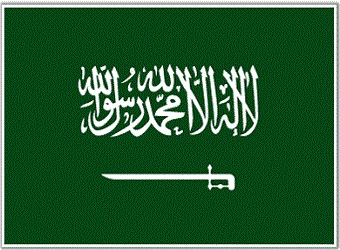Saudi Arabia’s 2018 budget may be its largest ever but the government must focus on the quality of spending, not just the quantity, experts said.
The Kingdom is prepared to increase spending to record levels next year — 978 billion riyals ($261 billion) — as it looks to diversify its economy away from energy as part of Crown Prince Mohammed Bin Salman’s bold reform agenda.
This expansionary budget comes at a time of economic struggle — the country entered into recession this year, contracting 0.5 percent — but the government is optimistic, estimating growth to rebound to 2.7 percent in 2018.
Redesigning the economy is a crucial component of Vision 2030, a wide-ranging plan to make Saudi Arabia less dependent on oil, reduce subsidies and increase employment. The jobless rate among Saudi citizens stands around 12.8 percent.
According to analysts, a key feature of the budget was the explicit focus on structural reforms accompanying the increased spending.
“The key is to look at what they’re spending the money on and how effectively they spend it,” Khatija Haque, head of Middle East and North Africa research at U.A.E-based bank Emirates NBD, told CNBC on Wednesday.
The government intends to cut energy subsidies next year, with the move widely expected to free up funds for other parts of the economy such as infrastructure.
“It’s really now about the effectiveness of spending rather than just throwing money at the problem and having it disappear into private hands without actually delivering what was promised — that’s a process that needs to change,” Haque said.
The introduction of a value added tax next year in addition to new excise taxes on tobacco and soft drinks, as well as recent levies on expatriates are widely expected to strengthen non-oil revenues next year. Riyadh forecasts non-oil income at 291 billion riyals in 2018, up from 256 billion riyals this year.
In addition to the steps announced to enhance non-oil revenues, some analysts also noted the Kingdom’s plans to lay out long-term targets.
“One of the big changes in this budget was even planning for five years … that’s a plus,” said Rachel Ziemba, adjunct senior fellow at the Center for a New American Security, referring to the government’s decision to extend the budget deficit to 2023.
“The real question in my mind is whether they are able to meet their aggressive build-out plans — the new cities they’re building — and also to get the sort of valuations on the privatizations from the public offerings they’re looking for,” she continued.
A cornerstone of the Kingdom’s economic strategy is an initial public offering of national oil giant Aramco, whose estimated valuation stands around $1 trillion.
The nation isn’t solely focused on the economy; it’s also undertaken significant social reforms such as allowing women to drive as well as starting a controversial anti-corruption probe.
Riyadh “is trying to move very quickly to build jobs and address long standing issues” but progress may come a little more slowly than authorities hope, noted Ziemba.
Source: VOX



